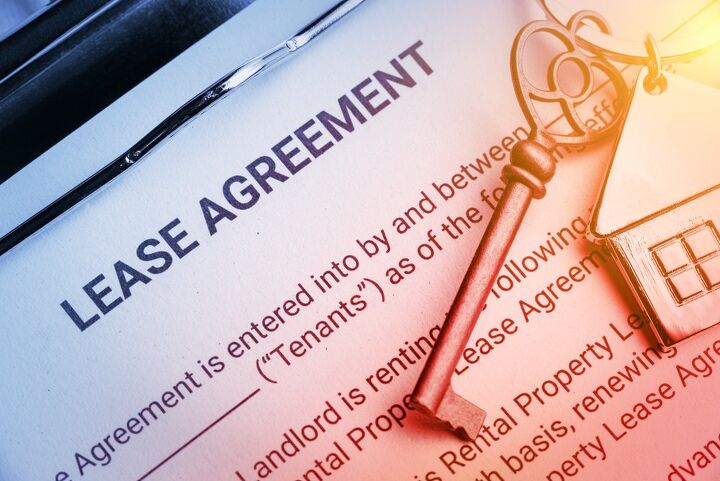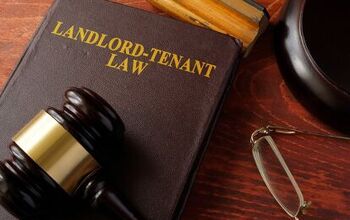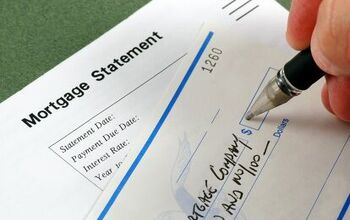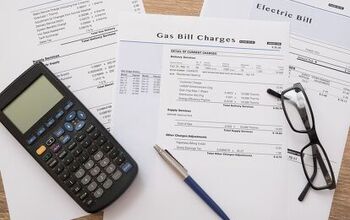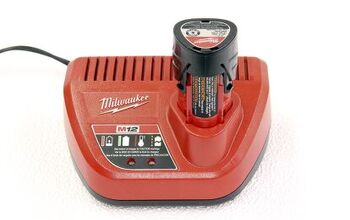Landlord Not Responding To Reference Request? (Here's What You Can Do)

The rental market is beyond difficult right now. There are very few properties available, and rental prices are skyrocketing. As a renter, you need to act quickly when you find a rental that you can afford. One thing that throws a wrench in the process is a previous landlord who doesn’t respond to a reference request.
Work directly with your previous landlord to obtain the reference letter. Meet with them in person, and wait while they complete the letter. As an alternative, get a statement of your account that shows rent payments. Discuss the matter with the new landlord to see if they will accept other documentation.
Let’s take a look at the approval process for rental units and details about reference letters from previous landlords.
Getting Approved for a Rental Property
Generally speaking, landlords require four documents before approving you for a rental property:
- Rental application
- Background check
- Reference request
- Proof of income
Rental Application
A rental application provides basic information about you. It is used by landlords to determine your creditworthiness and ability to pay rent consistently. The rental application is either approved or denied by your prospective landlord.
Background Check
Part of the rental application may be your consent for a background check. In some jurisdictions, landlords are not required to obtain consent for background checks. The landlord uses the background check to see if you have a criminal history, credit issues, and problems with past rental properties.
Reference Request
A reference request is another part of applying for a rental unit. This typically involves getting a letter from your previous landlord. The new landlord wants to know if you paid your rent on time. They also want to know if you complied with the requirements of the lease.
Proof of Income
Proof of income is required for a rental application. The new landlord wants to make sure that you make enough money to afford the rent. As a general rule, landlords verify that you make at least 3 times the rent each month. As the rental market gets tighter, some landlords require that prospective renter’s make even more than 3 times the rent.
Why You Need a Reference from a Previous Landlord
In a tight and unpredictable rental market, getting documents to your prospective landlord quickly is crucial. You have control over most of the process because you can submit the application, consent, and proof of income. What you have no control over is the actions of your previous landlord. Unfortunately, delays in getting the reference letter can cost you the rental property. Another prospective tenant may provide all the necessary documents faster than you.
As you can tell from all the proof that landlords require from new tenants, they want some assurance that you will be a good tenant and consistently pay your rent. As the economy has changed in recent years, landlords scrutinize much more because they have had some bad experiences. The reference letter is validation from a third party that you are responsible and worthy of having as a tenant.
What Your Previous Landlord Discloses
Ideally, your previous landlord will give you a glowing review. The letter typically contains information about your rental history, including lease violations and late rent payments. A reference letter usually also includes the term of the lease and monthly rent. Your prospective landlord may ask specific questions in the request, such as:
- Did you pay rent on time?
- Was any portion of the security deposit kept to cover damages?
- Did you give proper notice to vacate?
Unfortunately, though, there are no privacy laws when it comes to landlords giving references for their tenants. They can pretty much say anything that they want.
What Should Not Be Included in a Reference Letter
It is best for landlords to only state the facts in reference letters. This includes only information that can be verified by written documentation. Landlords should refrain from making any personal judgments about prior tenants. This could potentially lead to civil lawsuits.
If you feel that a previous landlord has included personal judgments in the reference letter, get yourself settled into a new home first. After that, speak with an attorney if you believe that you have suffered damages. Damages may include having to pay higher rental costs, moving to another location, or paying a higher security deposit. The attorney will advise you of your rights and any steps to take.
How Long Does a Landlord Reference Take?
On average, a landlord reference letter or response takes about 48 hours. In some cases, it may take a bit longer. Don’t get too worried until the process takes five business days or longer.
What Happens If You Can’t Get a Landlord Reference?
If you can’t get a reference letter from your previous landlord, the new landlord has the right to reject your rental application. This is incredibly frustrating when you have a good history and income, but this is how the rental market is right now. Rental properties are in high demand, and your prospective landlord knows that there is always another tenant in line for the property.
How to Deal with Challenges for Reference Requests
There are a few ways to deal with challenges that may arise when you are applying for a rental property. First, work with your new landlord. See if there are any other documents that can meet the requirements of the rental application process. Most landlords are understanding. Check to see if they will accept a reference letter from a different landlord.
Second, focus on maintaining a positive relationship with the new landlord. Sometimes that speaks more to your character than the reference letter.
Previous Landlord Doesn’t Respond
If your previous landlord does not respond to the reference request, contact them directly. Perhaps the request was overlooked or they got busy with other issues. Usually, this type of polite nudge is enough to get the ball rolling.
If you live in a rental complex with a community manager, sometimes it helps to stop by the office. Request the letter, and let them know that you will wait while they complete it.
Previous Landlord Refuses
Your previous landlord has the right to refuse providing a reference letter for you. In this case, request a statement of your account history. This demonstrates to your new landlord that you pay your rent on time. If your property uses an online system, check to see if you can print the payment history yourself.
Previous Landlord Gives a Bad Reference
Nothing is more disheartening than to get a bad reference from a previous landlord when you thought things were good. Unfortunately, this does happen for many reasons. If you unexpectedly get a bad reference from your previous landlord, you have two options.
One, work with the previous landlord to remedy any issues, and perhaps get a better reference. Two, work with the new landlord to see how the bad reference letter affects your chances of getting the unit. The new landlord may ask for a letter from a different landlord, or put little weight into the letter. This is when the positive relationship with the new landlord comes in handy.
Other Types of References for a Rental Application
Your rental application may ask for other types of references. The goal here is to choose people who will give you a glowing and meaningful review. The references can include anyone who has knowledge of your character, payment history, responsibility, professional conduct, and even educational performance. These references may help to offset any issues with the reference letter from your previous landlord. This is also a great opportunity to include other previous landlords.
Related Questions
What is considered a bad rental history?
Violations of rental agreements, bounced checks, damage to the property, prior evictions, and late rent payments are some of the issues that are considered for a bad rental history. A prospective landlord may also consider poor references.
How do I fix my rental history report?
Fixing your rental history is similar to fixing your credit report. Check the report, and address any errors. Focus on improving your next rental arrangement.
Can I be denied a rental unit if I have a felony?
In some cases, yes. It depends on your local laws, but the good news is that your prospective landlord also has to abide by federal laws. As such, it is illegal to be denied for having a felony conviction for certain types of crimes. Speak with an advocate in your area to learn more.
Conclusion
Trying to navigate the rental market right now is tough enough. Getting a bad reference from a previous landlord or no reference at all only complicates the issue. Stay calm, and focus on what you can control. Try to work with your previous landlord and expedite the process. Also, speak with your prospective landlord to see if there is another type of documentation that you can provide. Do what you can, and things will work out for the best.

Jennifer L. Eggerton loves being hands-on, whether it's with a home DIY project, making repairs, re-decorating a room, or keeping life organized. She enjoys helping people by sharing her knowledge, insights, and experiences, as well as her lessons learned. In addition to her work as a writer, Jennifer is a Jeep® overlander, self-published author, and nature photographer who loves being outdoors.
More by Jennifer Eggerton



